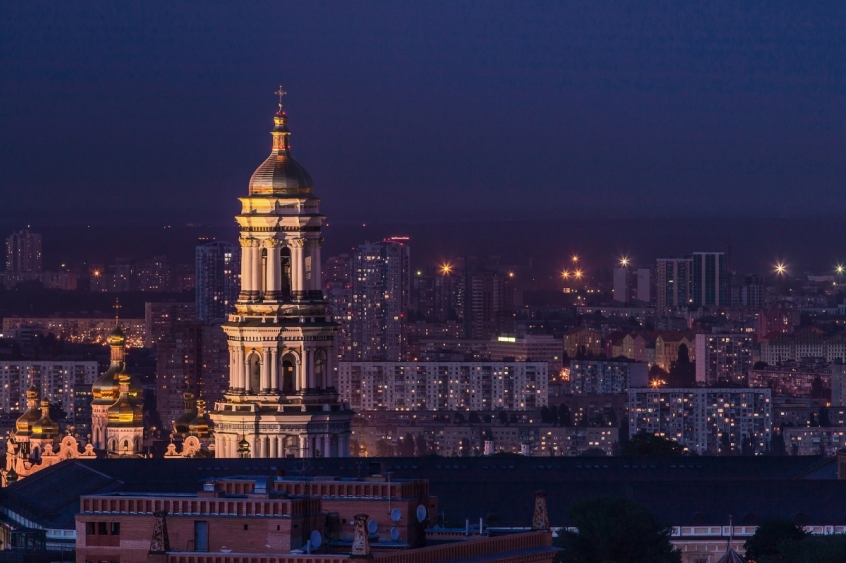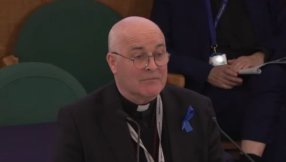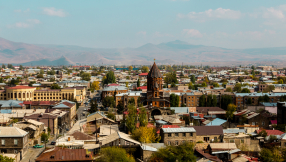
Conscientious objectors in Ukraine - do they exist?
I am a conscientious objector. My story, told in Faith in Confinement: A Story of Faith in the Red Army, appeared in millions of copies in over 20 languages, including English, Russian and Ukrainian. Many people admired me for my courage in refusing to serve with a weapon in the Soviet Army. Today, however, it is the same people who wrinkle their noses when conscientious objectors from Ukraine and Russia flee to the West.
Hundreds of thousands of 'refuseniks' have left Russia and Ukraine since the war between the two countries started. There is some understanding towards the deserting Russians, but fleeing Ukrainians are seen as cowards and traitors. But the conscientious objectors have little choice. The country has suspended the right to conscientious objection since the start of the war with Russia and requires all men between the ages of 18 and 60 to serve actively with weapons.
Even reasons of faith that lead to refusal to use any weapons are no longer heard. The country was attacked by Russia and must be defended by all means. In that case, religious convictions no longer count. And those who refuse will be tried and sentenced to prison. There are reports that throughout the country, the police search for people who refuse to comply with the draft, arrest them and send them to the front by force.
Young people who do not want to go to war have reportedly been hiding from the authorities for months trying to escape forced enlistment. Many are trying their luck abroad. Admittedly, the border authorities have strict orders not to allow conscripted men to leave the country. But in this corrupt country, a few thousand dollars in bribes are enough to slip through the authorities' meshes. And those who have money take advantage of these opportunities. By April 2022 alone, more than 3,000 men had entered Moldova in this way. Since the beginning of the war, tens of thousands of conscripted men are estimated to have already used this opportunity. They all face trial at home in Ukraine. One can only assume that they will not return home.
Forced recruitment has led to the disintegration of combat morale on the front lines for months. Time and again, Ukrainian soldiers desert their units. The deserters are threatened with heavy prison sentences, but the unbearable condition of the troops on the front - cold, hunger and a notorious lack of military orientation - drive out the fear of persecution. Then there is the certainty that young men with money will buy their way out of conscription, or for the equivalent of $3,000 bribes, ensure that they are not sent to a 'hot' section of the front line.
Ukrainian soldiers are thus leaving the front line not only out of religious conviction. Many complain of poor preparation for combat, inadequate weaponry, and poor leadership. All these evils are blamed by the press mainly on the Russian army, and probably rightly so. The Ukrainians, on the other hand, are often portrayed as heroes who, in the best possible way, do everything for the freedom of their country. However, the reality on the front lines is different.
The right to refuse military service
In a statement issued in May 2022, the Pacifist Movement of Ukraine repeatedly called for the right to conscientious objection for Ukrainians. No government in the world can compel people to go to the front and kill in the name of national security and freedom; those who reject killing on principle for reasons of conscience should not be forced to take up arms under any circumstances, they said.
Ukraine, independent since 1991, has by all rights enshrined the law on conscientious objection in its constitution. According to Article 35(3), "If the performance of military service is contrary to a citizen's religious beliefs, the service obligation shall be fulfilled by alternative service."
This is more precisely defined in Article 2 of the Alternative Service Law which states that the exercise of this right is limited to members of registered religious communities whose doctrine prohibits the use of weapons and service in the armed forces. The list includes Adventists, Baptists, Jehovah's Witnesses and the Pentecostal movement. An application must be submitted with an official letter from the respective religious community. The right is further restricted by the rule that the application must be submitted within six months of enlistment. Soldiers and reservists do not have the right to apply.
In July 2013, the United Nations Human Rights Committee reviewed Ukraine's Seventh Periodic Report on the International Association on Civil and Political Rights. In its conclusions, the committee expressed concern that no measures had been taken to extend the right of conscientious objection to persons who have made a decision of conscience without a religious background or who belong to other religions than Christianity. The committee emphasized below that the Alternative Service Regulations must be open to all conscientious objectors regardless of their convictions, whether religiously or non-religiously motivated.
As a member country of the Council of Europe, Ukraine is also obliged to implement judgments of the European Court of Human Rights. On July 7, 2011, the Grand Chamber of the Court held that "refusal to perform military service - when motivated by a serious and insurmountable conflict between the duty to perform service in the armed forces and the conscience or deep and sincere religious or other convictions of the individual - constitutes a conviction or belief of sufficient conclusiveness, seriousness, binding force and significance to fall within the guarantees of Article 9."
Article 9 of the European Convention on Human Rights guarantees the right to freedom of thought, conscience and religion, a law which according to the statement of the Committee of Ministers of the Council of Europe of 1987, "should also provide for the possibility of applying for recognition as a conscientious objector if the conditions for applying only arise during the performance of military service or during military exercises after basic training."
Thus, the human right to conscientious objection is not guaranteed in Ukraine, as it restricts access to members of some religious communities and, moreover, the application is limited in time. Now, even this limited right has also been suspended with the start of the war against Russia on 24 February 2022.
As recently as 2015, the Supreme Court in Ukraine upheld the right to conscientious objection during mobilization and for times of war. And less than a month before the outbreak of war, Ukraine abolished the law. But then the war came, and all conscientious objectors lost their state-guaranteed right overnight. Ukraine, which has always emphasized its readiness to become a full member of the European Union, is thus going against the law of the EU.
We need to address the situation of conscientious objectors
Evangelical Christians should stand up for people who are unjustly forcibly recruited, sent to the front and forced to kill against their declared will and conscience. Even if this is about defence against a mean aggressor, it is ultimately about killing. There is no such thing as a holy war. And people, including Christians, who are unwilling to kill should not be forced to do so.
No, refuseniks are neither traitors to their country nor cowards. They are working for the good of their country in many ways. Even and especially in difficult times like these. Their refusal to take up arms against the enemy is not a reflection of a lack of love for their homeland, but an expression of faith and deep conviction that even wars are not won by killing, but by negotiation. And for the beginning of such negotiations, they pray. Our support should be assured to them.
Dr. Johannes Reimer is professor of Mission studies and Intercultural Theology at the University of South Africa (UNISA) and director of the department of Public Engagement of the World Evangelical Alliance (WEA).













